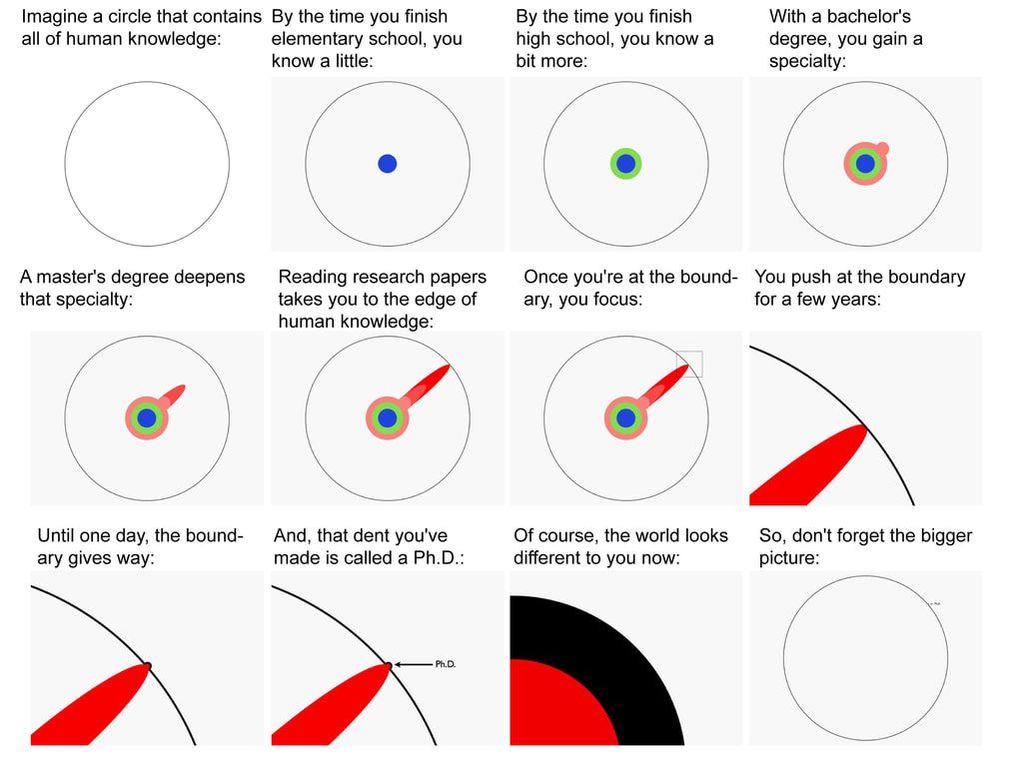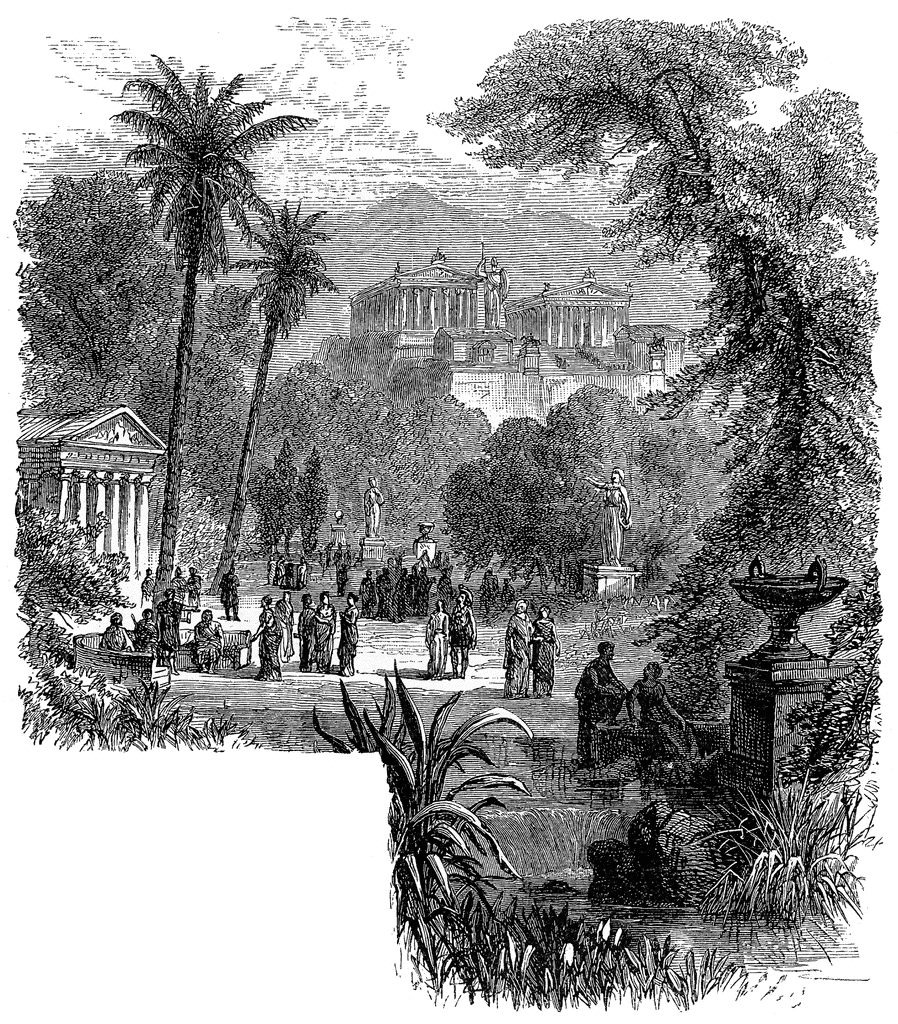## Building the Modern Science Stack
J. Colliander
[2i2c](https://2i2c.org) and [UBC](https://www.math.ubc.ca)
NASA SMD Data/Compute Architecture Study
slides: [bit.ly/smd-architecture](https://bit.ly/smd-architecture)
---
# Problem and Opportunity
----
## Problem
science is underperforming relative to potential
----
## Opportunity
technology + social innovation can boost science
----
## Headwound
massive need for high performing science ecosystem
----
## Immediacy
signals forecast transformation
investments in _open_ science
----
### Inflection Point?
Y. Benkler (2004) [called for commons-based governance](https://www.science.org/doi/10.1126/science.1100526) of science. It's finally happening!
+ Interactive computing ecosystem integration
+ Changed information flows
+ Commons-based science incentives
+ [NASA TOPS](https://science.nasa.gov/open-science/transform-to-open-science)
+ [UNESCO Recommendation](https://unesdoc.unesco.org/ark:/48223/pf0000379949/PDF/379949eng.pdf.multi.page=20)
+ [🇨🇦's Road Map to Open Science](https://www.ic.gc.ca/eic/site/063.nsf/eng/h_97992.html)
----
How should NASA configure data + compute architecture?
----
What principles should guide NASA's digital information ecosystem?
----
On what timeframe should we see transformation?
----
What do we measure that transforms?
---
# Science
----
## What is science?
A systematic social enterprise that builds and organizes human understanding of the universe with testable explanations and predictions.
:::success
The central activity of science is exchanging information.
:::
----
Science is a **social enterprise**.
Governance is the way we manage social collaboration.
----
<blockquote class="twitter-tweet"><p lang="en" dir="ltr">"<a href="https://twitter.com/hashtag/OpenScience?src=hash&ref_src=twsrc%5Etfw">#OpenScience</a> is a process, not a product." --<a href="https://twitter.com/fperez_org?ref_src=twsrc%5Etfw">@fperez_org</a> <a href="https://twitter.com/ToOpenScience?ref_src=twsrc%5Etfw">@ToOpenScience</a> Community Panel.</p>— James Colliander (@colliand) <a href="https://twitter.com/colliand/status/1578070619396009984?ref_src=twsrc%5Etfw">October 6, 2022</a></blockquote>
----
## Science Commons
+ **People** in social collaboration structures (universities, agencies, societies, philanthropy, publishers, teams,...)
+ **Resources** (salaries, instruments, libraries, infrastructure, **data**, **compute**,...)
:::info
Governance is the way we structure and manage social collaboration.
:::
----
## Science enterprise changes
+ pre-internet reprints vs. internet downloads
+ No NSF 80 years ago
+ paywalls; impact factors; [cost of knowledge](http://thecostofknowledge.com/)
+ iPhone emerged 15 years ago
----
## Monotonicity and Conservation
----
### massive ROI
Science works!
----
### Core activity
# information exchange

[Bell System Technical Journal](https://archive.org/details/bellsystemtechni27amerrich/page/380/mode/2up)
----
### Multi-generational Effort
Schools and Universities
----
```mermaid
gantt
title University History
section Americas
UNAM : 1910-09-01, 1000d
Johns Hopkins: 1877-02-22, 1000d
Morill Act: 1862-01-01, 100d
UPenn : 1755-09-01, 1000d
William and Mary : 1639-09-01, 1000d
Harvard : 1636-09-01, 1000d
section Expansion
Peking : 1898-01-01, 1000d
Berlin/Humboldt : 1810-01-01, 1000d
Edinburgh : 1582-09-01, 1000d
Copenhagen : 1475-09-01,1000d
Istanbul : 1453-09-01, 1000d
St. Andrews : 1410-09-01, 1000d
Leipzig : 1409-09-01, 1000d
Vienna : 1365-09-01, 1000d
Charles : 1347-09-01, 1000d
section Beginnings
Salamanaca : 1218-09-01, 1000d
Cambridge : 1209-09-01, 1000d
Oxford : 1200-09-01, 1000d
Bologna :1088-09-01 , 1000d
```
----
### Persistent tensions
collective vs. individual
specialization vs. generalization
dreams vs. capacity
----
### Pattern formalization accelerates science
mathematization, computation, data
biology $\longmapsto$ bioinformatics
_precision_ health, _smart_ agriculture, _digital_ sociology
---
# Guidance
----
## Intellectual Generosity
+ [W.P. Thurston: On proof and progress in mathematics](https://www.ams.org/journals/bull/1994-30-02/S0273-0979-1994-00502-6/)
+ [R.L. Morris: Intellectual generosity and the reward structure of mathematics](https://link.springer.com/article/10.1007/s11229-020-02660-w)
----
## Intellectual Humility
----

----
### [F. Ardila](https://en.wikipedia.org/wiki/Federico_Ardila)'s Axioms
1. Mathematical potential is distributed equally among different groups, irrespective of geographic, demographic, and economic boundaries.
2. Everyone can have joyful, meaningful, and empowering mathematical experiences.
3. Mathematics is a powerful, malleable tool that can be shaped and used differently by various communities to serve their needs.
4. Every student deserves to be treated with dignity and respect.
----
### [F. Ardila](https://en.wikipedia.org/wiki/Federico_Ardila)'s Axioms
1. _Scientific_ potential is distributed equally among different groups, irrespective of geographic, demographic, and economic boundaries.
2. Everyone can have joyful, meaningful, and empowering _scientific_ experiences.
3. _Science_ is a powerful, malleable tool that can be shaped and used differently by various communities to serve their needs.
4. Every student deserves to be treated with dignity and respect.
----
## Information exchange
----
basic needs $\longmapsto$ rights
Bell System: human need to connect $\longmapsto$ right to telephone
right to read, right to education
**right to participate** in science?
right to understand data?
----
Who are the audiences for NASA data/compute architecture?
What are NASA's obligations to these audiences?
How to balance right to participate and costs?
----
## Social + Technical Design Space?
+ 75th anniversary of digital information era
+ for-profit startups vs. collective structures
+ Facebook, Google, Wolfram vs. Linux, Wikipedia, SciPy
+ avoid vendor lock-in
+ scientists should actively improve science enterprise
+ 2023? Year of Open Science; Year 0 of robust qubits?
---
# Observations
----
**National scale open toolchain is ~~possible~~ inevitable**
[Pangeo](https://pangeo.io/), [Syzygy](https://syzygy.ca/), [Callysto](https://www.callysto.ca/), [mybinder](https://mybinder.org/), [2i2c](https://2i2c.org)
Colab, Sagemaker, Codespaces, ...
----
How to pay for it?
Who should get access?
Quantify costs? Recover costs?
**No one should own the scientific toolchain.**
----
2i2c is a defensive strategy to protect digital tools for science.
----
## [Right to Replicate](https://2i2c.org/right-to-replicate/)
+ avoid vendor lock-in
+ commercial cloud becomes utility
+ federation diversifies needed SRE talent
+ no purity tests like GPL; allow close source tools
----
## Digital Watering Holes
data + tools attracts communities
Pangeo
ICIJ
AWI/CIROH
Helio
Cryo
VREs; Science Gateways
----
## Multipurpose platforms
+ training
+ exploring
+ collaboration
+ dashboarding
+ storytelling
+ reproducing
----
## Multistakeholder audiences
+ trainees
+ researchers
+ reviewers
+ operations
+ policymakers
----
## Polymath vs. Monomath
Systems science vs. Narrow disciplinarity
----
## Speed of knowledge transfer
convection vs. diffusion
research $\longleftrightarrow$ operations
----
## Cryo community template
hub + community + events
target: AGU23
----
## Propose experiments during Year of Open Science?
+ time-boxed access for diverse audiences?
+ unify ongoing efforts (helio, cryo, climate)
+ improve storytelling tools
+ incentivize validation and reproduction
---
# Other Slides
----
## [Academus](https://en.wikipedia.org/wiki/Academus)
----
#### $A \Gamma \mbox{E} \Omega \mbox{METPHTO}\Sigma ~~ \mbox{MH}\Delta \mbox{EI} \Sigma ~~ \mbox{EI}\Sigma \mbox{IT} \Omega$
"Let none but geometers enter here"
----
<iframe src="https://www.google.com/maps/d/u/1/embed?mid=1GVWq3X7grAhDGoAQx5RSN1p8OCTKoP0&ehbc=2E312F" width="640" height="480"></iframe>
----

"Grove of Academus" by Quackenbos 1882; ©2022 by the University of South Florida
----
### Academy
+ pioneering social collaboration structure
+ Participants were "earth measurers"
+ "Academia" is a land acknowledgement
:::info
How should we name whatever we may invent here?
:::
----
## Science Commons
----
## Commons
+ The cultural and natural resources available to all members of society.
+ History: Common Land Enclosure
+ [Tragedy](https://www.science.org/doi/10.1126/science.162.3859.1243) of the Commons is not inevitable. ([Ostrom](https://www.cambridge.org/core/books/governing-the-commons/A8BB63BC4A1433A50A3FB92EDBBB97D5))
:::warning
Vast literature! Excludability, Rivalry, CPRs, ...
:::
----
### Contrasting views of human nature
:::danger
Humans are selfish individuals who act in response to incentives and force
:::
VERSUS
:::success
Humans are collaborative and work together for collective benefit
:::
----
# Information
----
```mermaid
gantt
title Bell System Timeline
section Vision
Information ubiquity :crit, active, 1947-01-01, 1984-01-01
Universal service: 1907-01-01, 1949-01-01
Phone in every town: 1877-01-01, 1907-04-30
section Milestones
Royalty Free Patents: 1956-01-01, 1984-06-01
Transistor :crit, active, 1948-06-01, 1984-06-01
Information Theory :crit, 1947-06-01, 1984-06-01
WW2 : 1941-12-07, 1945-06-15
Transatlantic : 1927-01-07, 100d
Vertical Monopoly: 1921-01-01, 1984-06-01
Transcontinental: 1915-01-25, 100d
Competition: 1894-06-01, 1907-04-30
Patent : 1879-06-01, 1894-06-01
```
----
### _"One Policy, One System, Universal Service"_
AT&T leadership argued phone service
+ is essential to human existence
+ will require massive R&D
+ must be delivered by a regulated monopoly
:::info
Phone service was exceptional and required a novel service delivery model.
:::
----
+ Information flows and is quantifiable ('bit')
+ Channel capacity can be measured
+ Transistor made abstractions realizable
:::success
Information theory created a social and technological design space.
:::
----
## Social technological design approaches
+ Market-based (startups)
+ Commons-based (Wikipedia, Linux)
:::warning
Both approaches have merit.
Commons-based approaches are less well-developed. Why?
:::
----
# Governance
----
### How should the science commmons be governed?
+ People and Resources
+ Information flows $\leftarrow$ exceptional like phone?
----
## Is there a playbook? Next steps?
Features of communities that successfully manage their commons were identified by Ostrom and colleagues. [R. Safner analyzed the success of Wikipedia](https://www.cambridge.org/core/journals/journal-of-institutional-economics/article/institutional-entrepreneurship-wikipedia-and-the-opportunity-of-the-commons/B9796AD1644066E413EB3B0AE3A6FDAE) using this framework.
[Y. Panda explored wiki principles as a strategy to democratize programming](https://commons.wikimedia.org/wiki/File:Stealing_some_of_Wikimedia%27s_Principles_to_Democratize_Programming.webm).
The [history of the Open Geospatial Consortium](https://www.ogc.org/ogc/historylong) has lessons.
{"metaMigratedAt":"2023-06-17T12:17:39.212Z","metaMigratedFrom":"YAML","title":"Building the Modern Science Stack","breaks":true,"description":"J. Colliander2i2c and UBC","contributors":"[{\"id\":\"ac79845d-d05b-4595-8684-e68df748ed79\",\"add\":16033,\"del\":4234}]"}